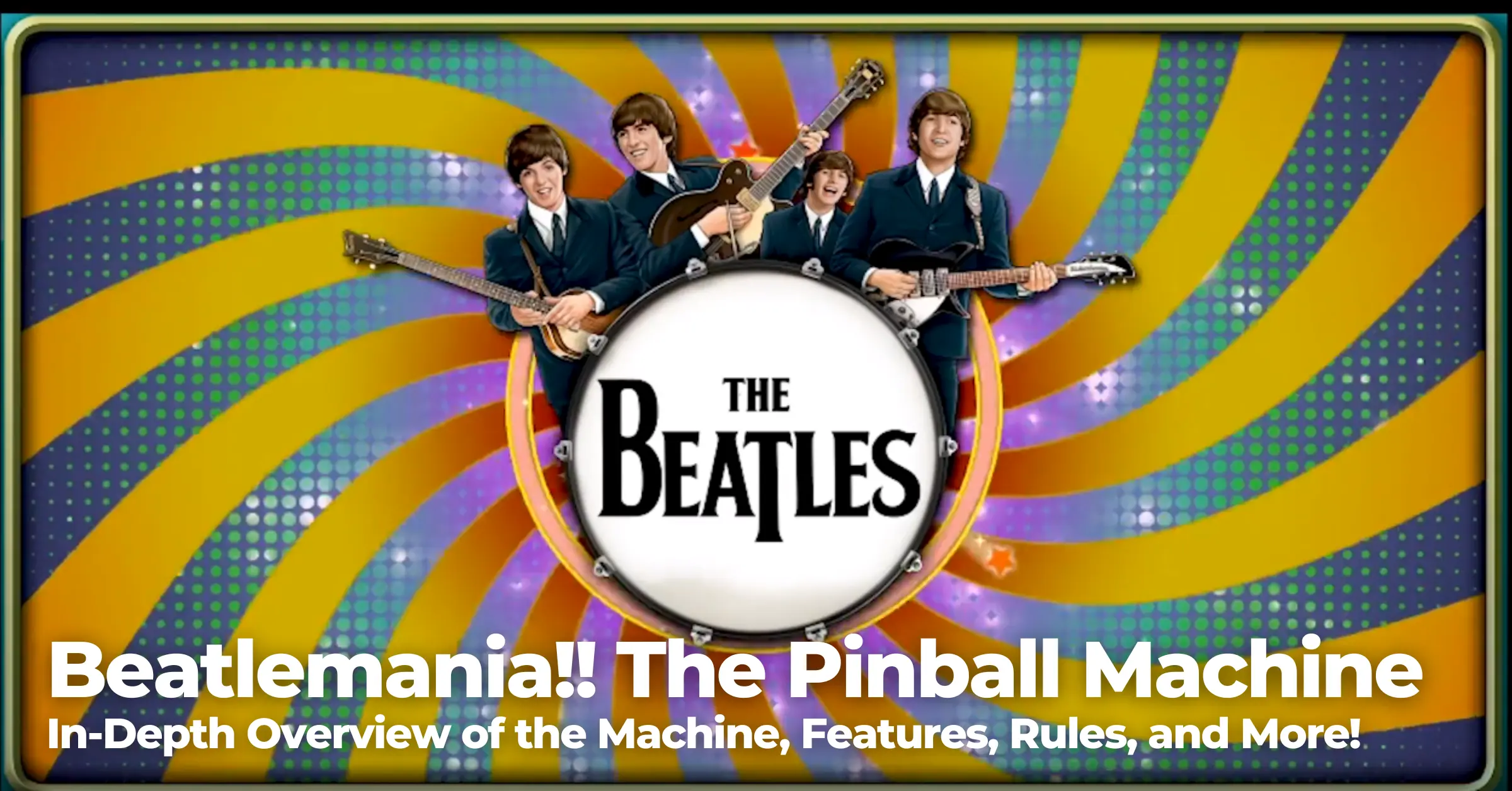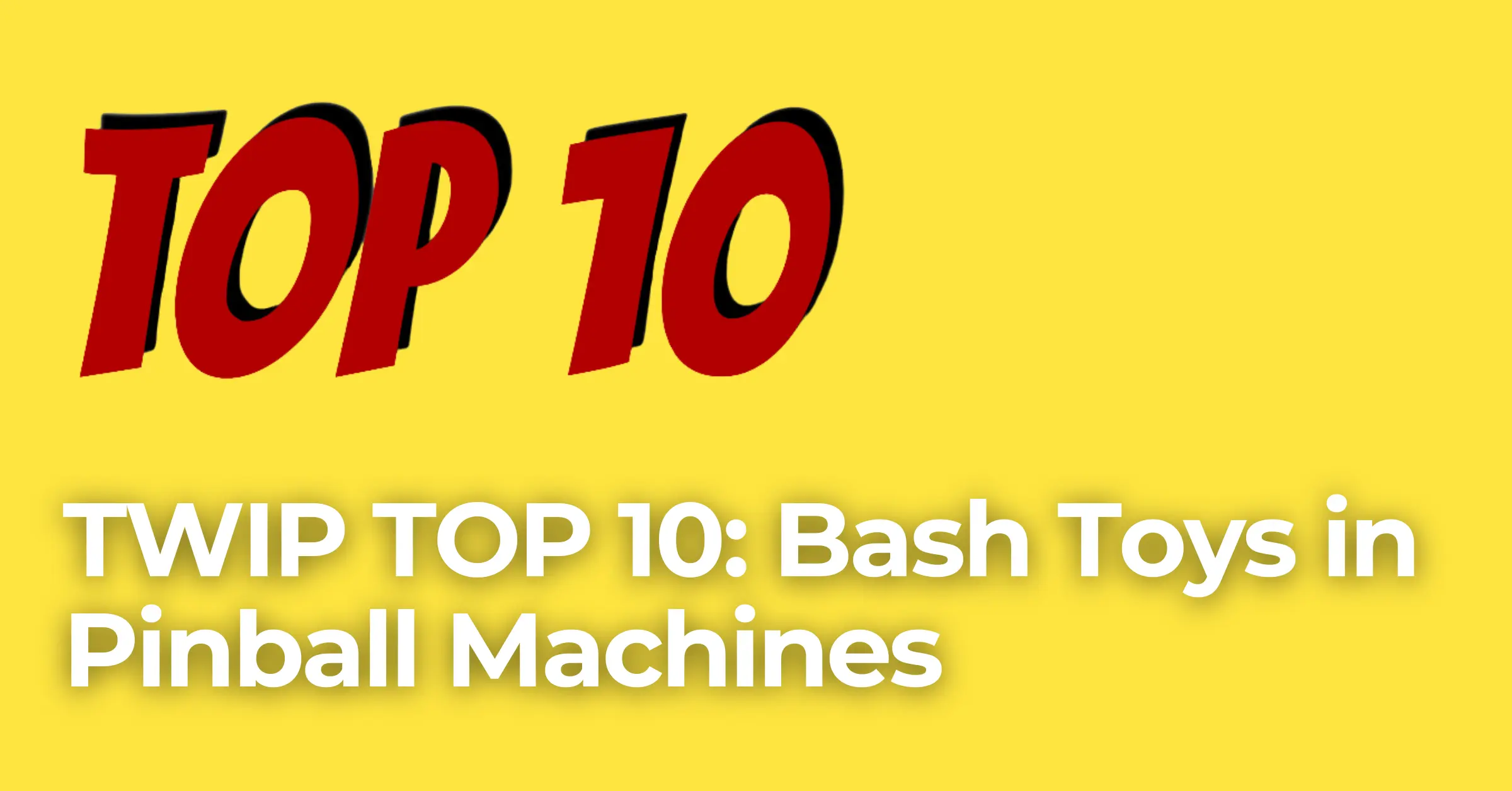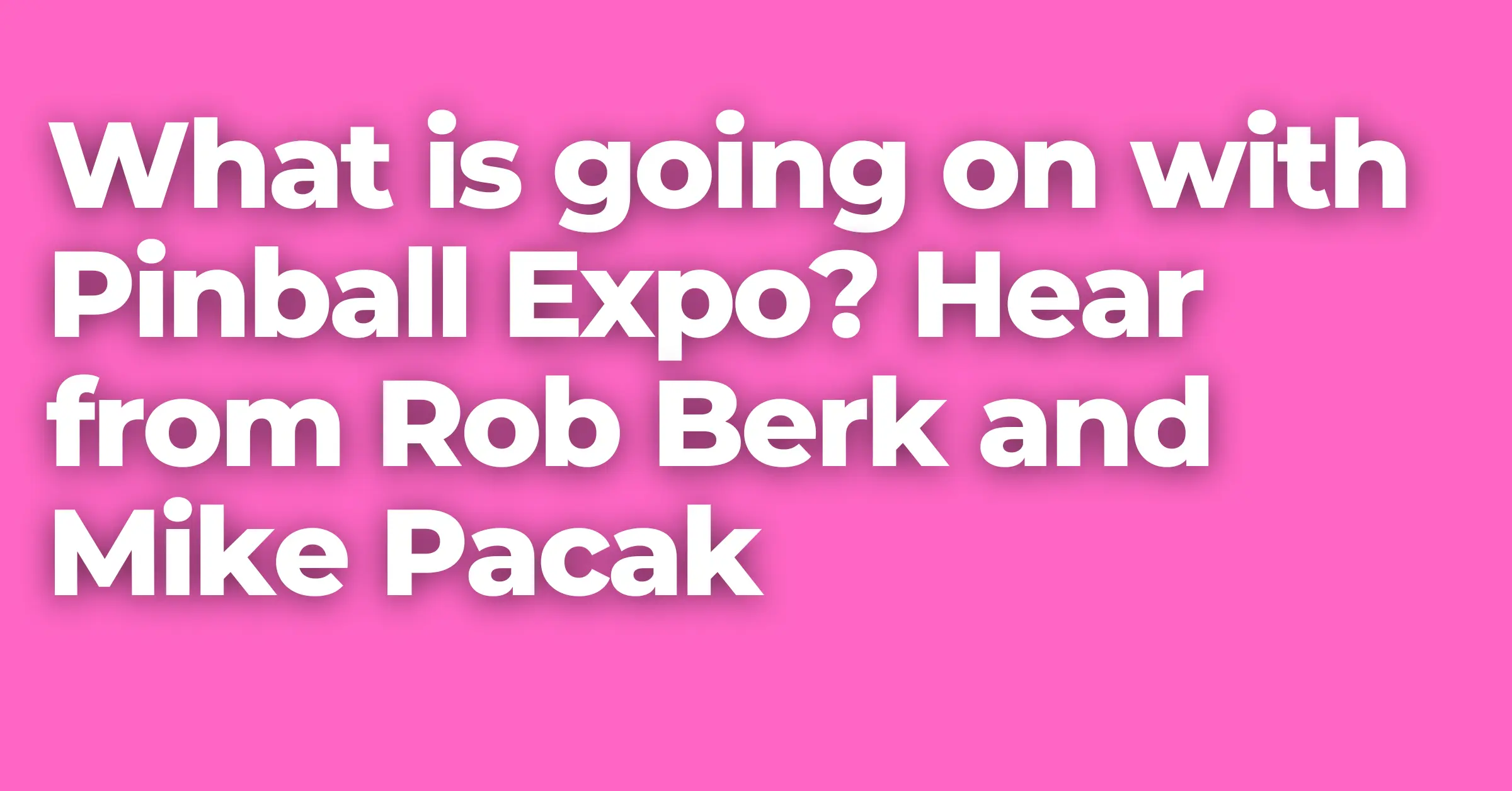Dan Forden: The Pinterview

Image Gallery
Dan Forden worked as the “sound guy” on Medieval Madness, Attack From Mars, The Shadow, The Simpson’s Pinball Party, Star Trek: The Next Generation, Black Knight 2000, Bride of Pinbot, and many more pinball machines. You may also know him from the the video game world where he’s worked on the NFL Blitz series, the MLB SlugFest series, and perhaps most notably, the Mortal Kombat series. His nickname is “Toasty” as he is also the guy that pops in from time to time on Mortal Kombat to yell “Toasty” in a falsetto voice after an epic uppercut.
“Toasty” can also be heard on Medieval Madness as it is one of the callouts when a player shoots the right ramp.
A huge thank you to Dan for the interview below!!
This Week in Pinball: You have worked on some of the most iconic pinball machines of all time, including Medieval Madness, The Shadow, and Attack from Mars. What was the procedure for sound and music for a pinball machine at that time? How much did you know about the machine during development and when during development was the sound and music implemented?
Dan Forden: Sound designers were always pretty involved from the early stages of a pinball game’s design cycle. Sound people were usually brought on in earnest once there was a functioning prototype. The theme of the game would’ve been understood by that time, and we would start thinking about musical directions, what kind of sound effects would be needed and what kinds of characters and character voices we’d want. From that point, we’d probably start writing a main-play tune, as well as a starting batch of sound effects. Over the course of development, it was really just a process of create stuff, see how it works in game, keep/edit/toss and repeat. It was also very collaborative as the entire design team would participate in idea sessions especially as it related to what kinds of speech and characters we wanted in the games.

TWIP: You worked on the music for Black Knight 2000, which is considered one of the best soundtracks in history of pinball. Can you share more about your work on that machine in particular?
DF: I started at Williams in late 1988 after Brian Schmidt hired me as a sound designer. One of my first tasks was to assist Brian with Black Knight 2000. One aspect of this that’s so cool, is that when I was in junior high, my friends and I would go to the local arcade and we’d play Flash and the original Black Knight. It still blows my mind that I’d end up working with the designer of those games 10+ years later. Anyway, my first job was to come up with a lead guitar sound that we could use in the game’s music. This made sense because everything about Steve Ritchie is heavy metal, and his games should have screaming guitars. So I worked on this synth patch. They seemed to like it. I also did some sound effects – smaller things like lane switches and targets. Later, Steve approached me with a riff that he wanted to be used for the Multiball tune. I took his riff and extended it to create the Multiball tune. What was fun for me was the idea of composing heavy metal guitar leads in the style of a Steve Vai or similar guitarist – just ridiculous cascades of notes – that we could do easily because it was all programmed.

TWIP: In your work in pinball and outside of pinball, you’ve worked with a lot of licenses. Any good stories about working with licensors? How different is it working on a licensed product vs an unlicensed product?
DF: Probably the funniest has to do with the NFL and our NFL Blitz game at Midway. We were writing the script for the play-by-play and color announcers and someone came up with “Obliviated him!” in response to a big hit. We had to get the scripts approved by the NFL licensing arm, of course, and they flagged that one for removal. “Obliviated” isn’t even a word. They were definitely getting queasy about their relationship with us and it ended after the next game, I believe.
Another cool thing has been interacting with some of the stars associated with some of these licenses. I’ve worked with Clint Eastwood, Patrick Stewart, Tim Curry, Tina Fey among others. It’s cool to have brushed up against some of these people throughout the course of my career.
TWIP: You’ve worked with Steve Ritchie many times, an icon in the pinball industry. How was it working with him? Is it true that for High Speed 2 that you and Steve recorded the exhaust sound of someone’s car for the game?
DF: It’s always been fun working with Steve. He’s been a big supporter of mine from way back. He’s also very passionate about every game he works on and wants everything to be awesome, so more stuff gets left on the cutting room floor. That’s why his games are so great.
TWIP: Star Trek: The Next Generation is one of the most complicated and iconic machines of all time. I’ve heard that you recorded speech with the cast members from the show, and they gave personalized callouts for the game. Can you share more about your work on that machine and with those folks?
DF: That was my first experience recording high profile individuals. It was pretty cool. Williams had arranged for me to be in Hollywood when the cast was “looping” dialogue for a recent episode. Looping is the process of replacing dialogue that was recorded on-set (if there was noise, or if the director didn’t like a take, or whatever). I was allowed to piggy-back on their looping sessions to record lines for the pinball machine. They all knew about this and they knew they could record stuff for their own individual machines. I was blown away by how professional Patrick Stewart was. I had written a line for him to say, “Our experience in the Neutral Zone was most remarkable”. I thought it was a pretty weak line, but we needed something generic like that. Then Patrick Stewart read it, and I’m thinking “Wow – what a great line!”.

TWIP: Do you think we’ll ever see a Mortal Kombat pinball machine?
DF: Ha ha – I have no idea – that would be awesome though. It’s not the craziest idea.
TWIP: Have you ever considered getting back into the pinball industry?
DF: I would definitely be open to working on a pin again.










